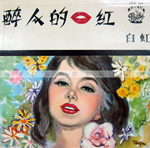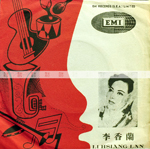In 1949, a whole group of multi-talented stars moved from Shanghai to Hong Kong. Mando pop rose to prominence, rivalling the presence of Canto opera music and Canto pop in a short period of time. The young Wong Jum-sum frequented radio stations and recording studios with his harmonica band members, in that process encountered in person many of these Mando pop stars and maestros, including illustrious names like Li Xian-lan, Bai Guang, Yao li and Yao Min. He also regularly collaborated with Filipino musicians who once illuminated the nightclubs of Shanghai.
These stars and musicians created a reservoir of Mando pop songs in the 1950s. The latter formed an inexhaustible treasure trove for radio music program presenters of the time.

Breeze from South-east Asia
South-east Asia was important for Mando pop. In the 1950s, Many Mando pop singers and songs travelled from Shanghai through Hong Kong to Singapore and Malaya, picking up themes and emotions from the region, enriching its legacy.
South-east Asia was important for Mando pop. In the 1950s, Many Mando pop singers and songs travelled from Shanghai through Hong Kong to Singapore and Malaya, picking up themes and emotions from the region, enriching its legacy.
Loading the player...

37 / 44












































